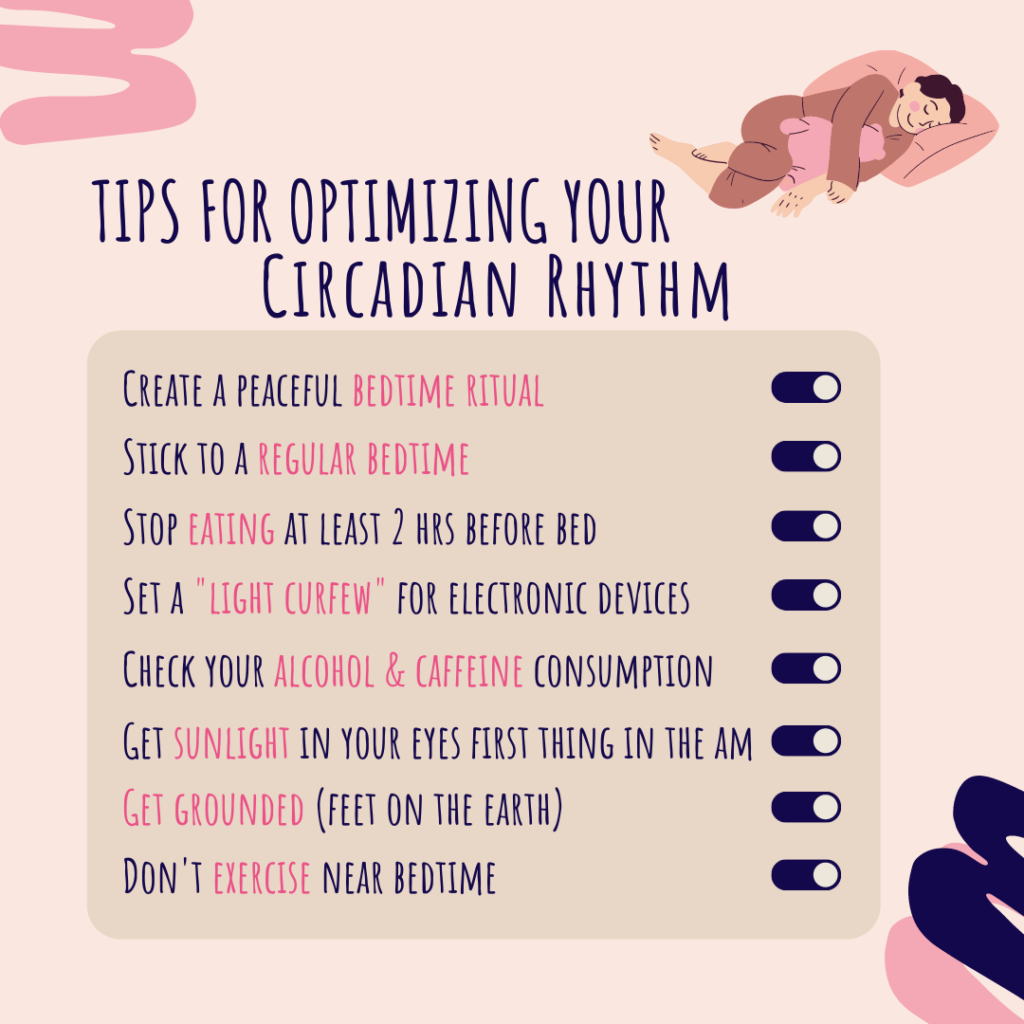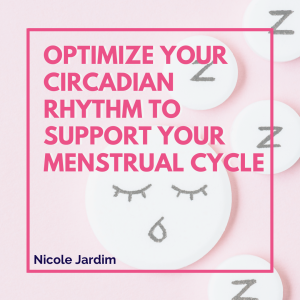Ah, melatonin…
…the hormone responsible for regulating your circadian rhythm and helping you fall asleep at night.😴
Melatonin supplements have become super popular in recent times due to our fast-paced, hectic, artificial light–flooded lives.
However, giving yourself a large dose of melatonin isn’t the same as having a healthy circadian rhythm and naturally regulated melatonin levels.
I said it, sorry, not sorry. 🤷🏻♀️
Your circadian rhythm, aka the sleep/wake cycle, is governed by darkness, and both natural (sunlight ☀️ & moonlight 🌑) and unnatural (screens) light exposure.
Overexposure to crazy amounts of blue light from computers, smartphones, and TVs reduces your body’s ability to produce melatonin, which can seriously mess with your sleep. Bummer!
This is especially the case when artificial light is used in the evening and before bed, when our bodies are naturally winding down.
Here’s the thing: your sleep/wake cycle is intricately connected to your menstrual cycle.🩸😮
Low Melatonin is linked to:
💡A lack of ovulation
💡Infertility
💡And even chronic pelvic pain in endometriosis
Large amounts of melatonin can:
💡Delay or even prevent ovulation
💡Potentially change the timing of your menstrual cycle
💡Stop your cycle altogether
Too little or too much melatonin can do a number on your cycle—so prioritizing sleep, *rather than running to supplementation*, so you can produce your OWN melatonin is über important.
Follow the tips in this image to start optimizing your circadian rhythm and give your body the best chance at falling asleep + staying asleep. 💤

Want a deeper dive? Check out Week Five in my book, Fix Your Period!



